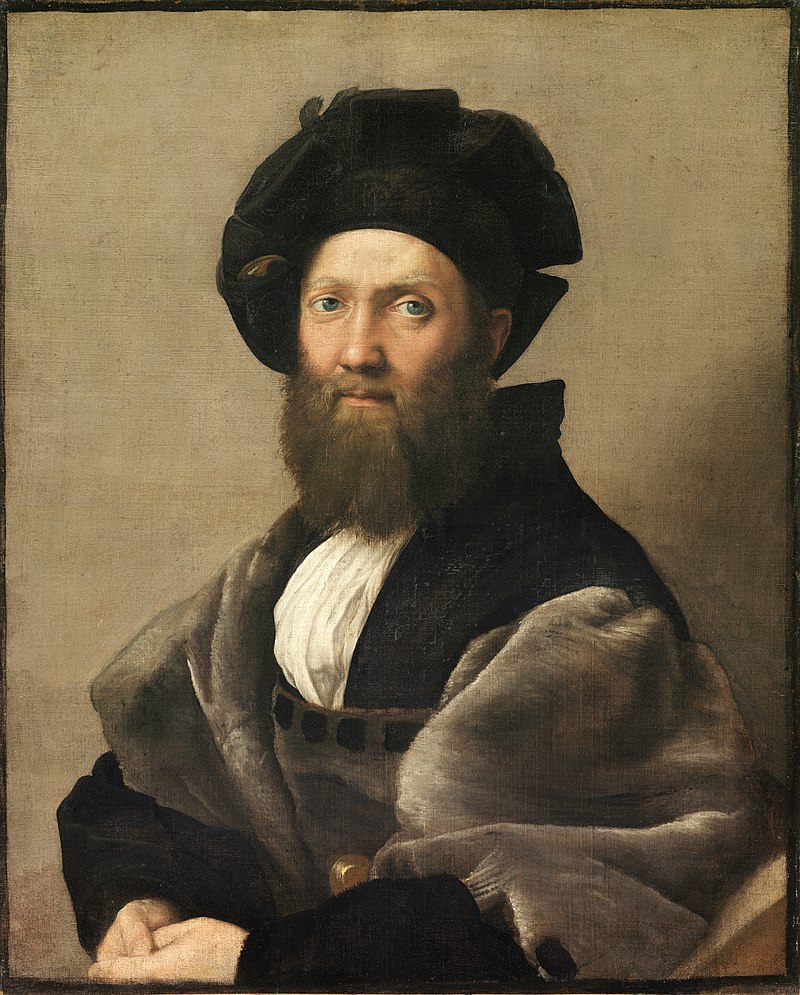What was once called sprezzatura, a wonderful word coined by the sixteenth-century writer Baldassare Castiglione, is a kind of graceful restraint that is an elemental characteristic of true civility. It helped define Western ideas about the gentleman, and it helped strangers to manage the slow transition to friendship. Yet today many people — too many — believe in casual and even instant intimacy. They think it’s perfectly acceptable to say the first thing that pops into their heads and to confess their darkest secrets to folks they have just met. It’s a legacy of the Sixties, of “let it all hang out.” One of that decade’s libertine greybeards, Henry Miller, once whined, “Why are we so full of restraint? . . . Is it fear of losing ourselves? Until we do lose ourselves there is no hope of finding ourselves.”
The self can neither be lost nor found; isn’t some sort of psychic unicorn. It’s a creative process, perhaps the creative process, and the development of character — even the enjoyment of sex, Miller’s obsession — depends as much upon restraint as upon spontaneity. Without doubt we may learn something important in the surrender to sexual passion. But, among some men anyway, sex without self-control is just premature ejaculation, and plenty of men and women cultivate lifestyles characterized by self-indulgence. We live in an Age of Premature Ejaculation (APE), an awkward period of spontaneous, ill-considered, naked spouting off. We live among the APEs.
The Internet has exposed the way voyeurism may make fools of millions and make millions for fools, as have “Talk TV” and “Reality TV.” When the bright lights shine and we are asked (anything), we tell (everything), boldly asserting that we have nothing to hide, evidently believing there really is nothing about which to feel shame; or — if we are embarrassed — that the surrender to fleeting media attention is a personal redemption through public expiation.

Famous is good, but infamous will do.
It’s hard not to be sucked into this eddy of tastelessness, if only because of its ubiquity. As witty, prescient G. K. Chesterton put it: “It is always simple to fall; there are an infinity of angles at which one falls, only one at which one stands.” Being “upright” — as we used to say — is ever more difficult, and for APEs the notion of being upright is downright offensive, since they infer that the man standing straight stands in judgment. Not to be “open” to every “lifestyle” and every “preference” is to be unjust. (Of course, many who profess “openness” are hostile to those who deny the equality of all opinions and behaviors.) But to be restrained, to have sprezzatura — this is heretical if not pathological.
Castiglione was an advisor to Popes Leo X and Clement VII, and to the Holy Roman Emperor Charles V. Castiglione’s The Book of the Courtier appeared in 1528, but it has surprising freshness today. It was considered revolutionary in its time, and yet Castiglione’s take on manliness owed much to Aristotle and Cicero. The ideal courtier was to have Aristotelian arete, which is to say excellence. An aristos (whence our word aristocrat) was educated in the best ideas and tempered by training to possess the best impulses, martial and artistic. He was, in Jacob Burckhardt’s phrase, engaged in “self-fashioning.” For Aristotle — and for men of the Renaissance such as Castiglione and Shakespeare — the standard for self-fashioning was the “golden mean,” the center between extremes. As Peter Burke explains: “Courage is defined as the mean between rashness and cowardice, liberality as the mean between extravagance and parsimony, and so on.” From Cicero, Castiglione took the Stoic concept of neglentia diligens (studied negligence), an obvious precursor to sprezzatura. And like many writers of his period, Castiglione respected Ovid’s famous observation, “Ars est celare artem.”
The purpose of art is to conceal itself.
Castiglione advocates such “art” in the formation of the gentleman, but his critics say he means pretense or dishonesty, and Castiglione’s courtier has come down to us as a superficial fellow content to fake it if he can — so long as the deception is shrewd. But no one is born a gentleman. Becoming one is a matter of education, and Castiglione’s “art” is really the practice of the principles that when finally internalized create the man whose urbanity, wit, athleticism, and restraint have sunk into his sinews. He won’t crow about it, though, because implicit in sprezzatura is not only an effortless elegance but also a strenuous self-control. As Cervantes has Sancho Panza put it: “A closed mouth catches no flies.”
Nothing — and I mean nothing — is more destructive of civility than notions of instant intimacy: the way we immediately address one another by our first names; the way we share intimate facts about our lives with strangers; the way some clothing displays nudity.
The handshake developed as a way strangers could show themselves unarmed. It was a sensible and cautious first step towards friendship. We do well to remember that intimacy must be a process, a negotiation, and that who meets a stranger and jumps quickly into bed, so to speak, has a better than even chance of waking up next to an enemy.














